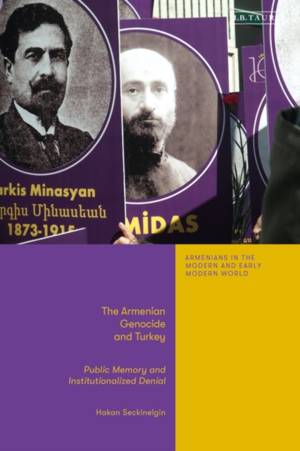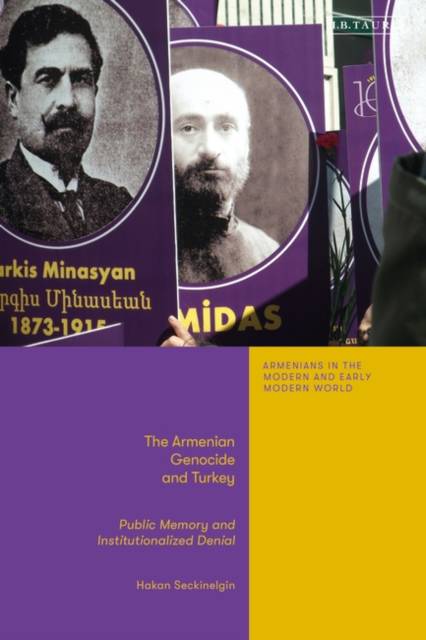
- Afhalen na 1 uur in een winkel met voorraad
- Gratis thuislevering in België vanaf € 30
- Ruim aanbod met 7 miljoen producten
- Afhalen na 1 uur in een winkel met voorraad
- Gratis thuislevering in België vanaf € 30
- Ruim aanbod met 7 miljoen producten
Zoeken
€ 195,45
+ 390 punten
Omschrijving
How is official denial of the Armenian genocide maintained in Turkey? In this book, Hakan Seckinelgin investigates the mechanisms by which denial of the events of 1915 are reproduced in official discourse, and the effect this has on Turkish citizens. Examining state education, media discourse, academic publications, as well as public events debating the Armenian genocide, the book argues that, at the public level, there exists a 'grammar' or 'repertoire' of denial in Turkey which regulates how the issue can be publicly conceptualised and understood. The book's careful analysis examines the way that knowledge about the genocide is censored in Turkey, from the language that must be used to publicly discuss it, to the complex way in which selective knowledge and erased history is reproduced, from 1915 and subsequent generations until today. It argues that denialism has become important to a certain kind Turkish national identity and belonging - and suggests ways in which this relationship can be unpicked in future.
Specificaties
Betrokkenen
- Auteur(s):
- Uitgeverij:
Inhoud
- Aantal bladzijden:
- 224
- Taal:
- Engels
- Reeks:
Eigenschappen
- Productcode (EAN):
- 9780755653614
- Verschijningsdatum:
- 18/04/2024
- Uitvoering:
- Hardcover
- Formaat:
- Genaaid
- Afmetingen:
- 156 mm x 234 mm
- Gewicht:
- 489 g

Alleen bij Standaard Boekhandel
+ 390 punten op je klantenkaart van Standaard Boekhandel
Beoordelingen
We publiceren alleen reviews die voldoen aan de voorwaarden voor reviews. Bekijk onze voorwaarden voor reviews.











